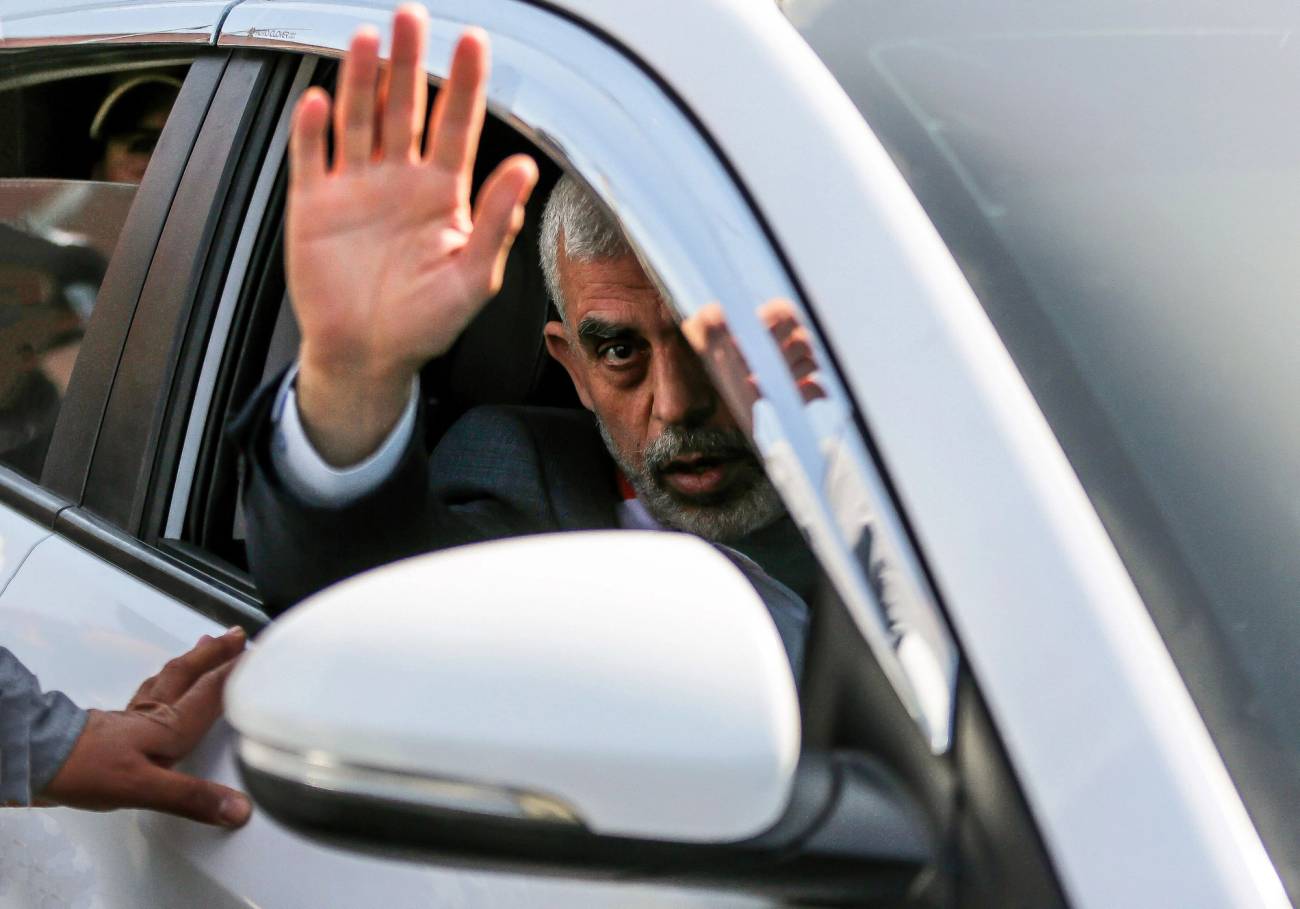 Saving Sinwar
Saving Sinwar
JUDITH MILLER
An Israeli who spent ‘hundreds of hours’ with his country’s most deadly foe assesses his next move
.
 Yahya Sinwar in Gaza, 2022 / YOUSEF MASOUD/SOPA IMAGES/LIGHTROCKET VIA GETTY IMAGES
Yahya Sinwar in Gaza, 2022 / YOUSEF MASOUD/SOPA IMAGES/LIGHTROCKET VIA GETTY IMAGES
The Palestinian in the clinic at one of Israel’s highest security prisons near Beersheba had a persistent pain in the back of his neck. He trembled and had trouble walking. Yuval Bitton, then a 28-year-old dentist just a year out of medical school, suspected that his patient might be suffering from a C.V.A., an ischemic cerebrovascular accident, resulting from a life-threatening brain tumor. “He needs to be hospitalized, immediately,” Bitton advised the prison doctors.
Dr. Bitton’s diagnosis was quickly confirmed at the Soroka Medical Center in Beersheba. The surgery took hours. The prisoner survived. When he returned to the prison, he thanked Bitton and the rest of the prison medical staff for having saved his life—in excellent Hebrew.
The year was 2004. The patient was Yahya Sinwar, the Palestinian who in 2017 would become the leader of Hamas in Gaza and subsequently the mastermind of the Oct. 7 attack in southern Israel in which 1,200 mostly Israeli civilians died and 240 were taken hostage.
Bitton described the fateful incident and what he said were “hundreds of hours” of conversations with Sinwar in prison in the ensuing years when I met him last week in a peaceful garden in a Tel Aviv suburb, a world away from the Israeli prisons in which the Hamas leader was held for 22 years prior to his release in 2011.
‘Sinwar didn’t care how many Palestinians would die for their cause. There was no flexibility, no room for compromise.’
“Even then, he looked and carried himself like a leader,” Bitton recalled. “He was thin, tough, and very extreme.” There was tension in jail between the militant Islamists of Gaza and those from the West Bank, which was ruled by the Palestinian Authority initially headed by Yasser Arafat and then by his successor, Mahmoud Abbas. Sinwar viewed even the most militant members of the Palestinian Authority as soft and undisciplined. Above all, they were traitors to Islam for having agreed to share with the Jews holy land that God had given exclusively to Muslims.
Sinwar and his lieutenants, Tawfik Abu Naim and Rawhi Mushtaha, now all senior Hamas figures, were “like an army” inside the prison, Bitton recalled. An Islamic band of brothers, they enforced rules, gave orders, and held secret elections for Hamas’ “majlis,” its ruling council inside the prison. They communicated with one another and with fellow militants outside the jail through messages and tiny plastic cellphones smuggled into the jail by visitors—lawyers, wives, babies. The contraband was concealed in diapers, in women’s bras, and in their vaginas.
“In those days, we didn’t routinely or thoroughly search women or babies or even surveil conversations between lawyers and their clients,” Bitton said, recalling these early examples of suicidal democracy. “We were so naive.”
Sinwar studied his enemy assiduously. He read Israeli newspapers, took classes in Jewish history through the prison’s “open university,” and spoke to Bitton about Hamas’ goals—the expulsion of all Jews from Palestine, the duty to implement God’s laws as given to Muhammad on all sacred Muslim soil. Numerous efforts to recruit him in prison failed. “The struggle continued inside the prison,” Bitton said. Sinwar was not married then, and he had few visitors. “Hamas and the struggle were his life.”
Judith Miller, Tablet Magazine’s theater critic, is a former New York Times Cairo bureau chief and investigative reporter. She is also the author of the memoir The Story: A Reporter’s Journey.
Zawartość publikowanych artykułów i materiałów nie reprezentuje poglądów ani opinii Reunion’68,
ani też webmastera Blogu Reunion’68, chyba ze jest to wyraźnie zaznaczone.
Twoje uwagi, linki, własne artykuły lub wiadomości prześlij na adres:
webmaster@reunion68.com
